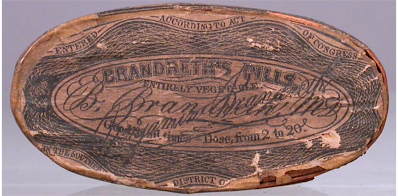Guest post by John M. J. Gretchko
Although an abbreviated H Melville, found as such in New York City newspapers, can echo the person of Herman Melville, one must be careful drawing an easy conclusion, since a couple of H Melvilles existed in mid-century New York. However, at least two instances of H. Melville point to Herman Melville.
1846
On 11 July 1846 in “ARRIVALS AT THE CITY HOTELS” from the New York Evening Express, H. Melville of Lans, so abbreviated from Lansingburgh, was checked into Dunning’s Hotel at 66 Cortlandt Street (Ground Zero on 9/11), diagonally across from the house where Herman had been a child. The proprietor was Smith Dunning. At this time Herman was in town to receive cuts to the expurgated edition of Typee and to make revisions to it and possibly to collect $150 from Wiley and Putnam from his Typee account (Jay Leyda, The Melville Log Volume 1 pages 221-2). This H. Melville is undoubtedly Herman Melville, who may have been staying at Dunning’s for several days.
1862
In chapter 92 of Moby-Dick, “Ambergris,” Melville facetiously speaks of curing the dyspepsia of a whale by administering “three or four boatloads of Brandreth pills.” |
| Brandreth's Pills National Museum of American History |
Nine years later on 10 December 1860, Allan Melville, Herman’s brother, filed a complaint before the Supreme Court of the City and County of New York for plaintiffs Maunsell B. Field and Ward McLean, real estate brokers, against Benjamin Brandreth, famed and wealthy purveyor of purgative pills. (Field, also a lawyer, along with the illustrator Felix O. C. Darley had visited Herman at Arrowhead one summer in the early 1850s).
 |
| via NYPL Digital Collections |
Brandreth had employed Field and McLean to negotiate a loan for $155,000 secured by a mortgage for the Brandreth House, a first-class hotel, at 294 Canal Street and the intersection of Broadway, Canal, and Lispenard Streets in New York City. Plaintiffs agreed to accept one percent commission. But the Mutual Life Insurance Company of New York, at first willing, declined to finance the loan, and Brandreth refused to pay the commission. But on 17 October 1862, Allan won the case for the plaintiffs against Brandreth, and the plaintiffs were paid their one percent and then some (case B-40). Curiously, an H. Melville of Massachusetts had checked into the Brandreth House the month before on 6 September 1862.
Barring a weird coincidence, this H. Melville should be Herman. In Albany Peter Gansevoort had written in his diary that after tea on 4 September Herman had taken the boat for New York (Leyda, Melville Log Volume 2 page 654).
Hershel Parker comments in Herman Melville: A Biography Volume 2, 1851-1891 (Johns Hopkins University Press, 2002), page 515: “What his purpose was in going is not known.” Had Allan sent Herman to inspect and assess the state of Brandreth’s collateral? If the hotel had deteriorated, then the failure of the loan was Brandreth’s fault.
Brandreth House, as described in the 1866 directory, Miller's New York As It Is, or Stranger's Guide-Book on page 69:
“The rooms are elegantly furnished---many of them in suites of communicating parlors and chambers, suitable for families and parties traveling together. Being kept on the European plan, guests may live in the most economical or luxurious manner. Meals served at all hours at the shortest notice.”



No comments:
Post a Comment